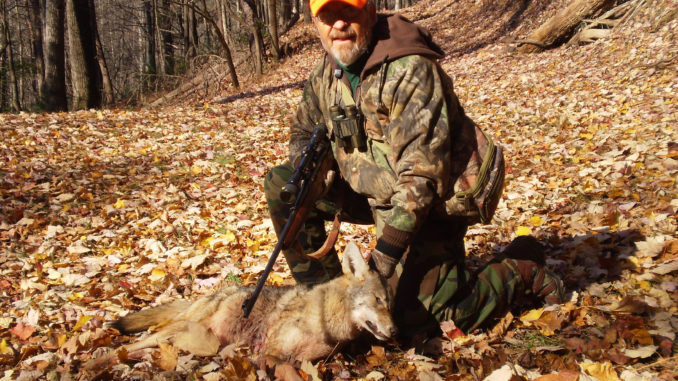
House sponsor promises return in 2013 session
A House bill that would have expanded opportunities for killing feral hogs, coyotes and armadillos at night got caught in a time bind at the end of the legislative session and missed being approved by a few hours, but the bill’s author said he will pre-file a modified bill for the 2013 session.
A similar Senate bill that also expanded opportunities for taking the invasive animals, which did pass and was signed by the governor, did not go far enough, said Rep. Phillip Lowe (R-Florence). That bill, introduced by Sen. Shane Martin, (R-Spartanburg), would have allowed coyotes, hogs and armadillos to be hunted at night during a special season from the last day of February to the first day of July with the aid of bait, artificial lights, electronics calls and nigh vision devices.
However, Martin’s bill would have required landowners to call the S.C. Department of Natural Resources at least 48 hours before hunting the animals at night, or have the property registered with SCDNR as prescribed by the agency. Notification would have to include the name and hunting license of each person participating and the location of the planned hunt.
The wording in the Martin bill is too nebulous, according to Lowe.
“There is some ambiguity there I want to clear up,” Lowe said. “Specifically, I want it to be absolutely clear that once a landowner has notified (SCDNR), he plans on hunting or eradicating hogs and coyotes during that 4-month period, he does not have to keep calling back.”
Lowe said he wants his bill to direct that a hunting club will only have to send in the names of club members one time to indicate that they plan to hunt the property at any time during the 4-month period.
“I don’t want it to get into a situation where the have to keep asking for a permit so people can react immediately to a problem,” he said. “I want the land itself permitted, not the individual. If at 5 o’clock on Friday I find I have a problem and I can get two or three guys ready to help me eradicate hogs, I don’t want to have to notify (SCDNR) again.”
The need for this flexibility, Lowe said, is because feral hogs move in and out of different locations, depending on food and human pressure.
“If you apply a little pressure, hogs will move onto neighboring land, and then one day they will be back,” he said. “And you have to deal with them quickly, because they can cause a lot of damage to your crops, roads, dikes and even trees.”
Lowe’s original bill would have allowed the use of any legal firearm or archery equipment, plus bait, electronic calls, artificial light, infrared, thermal or laser sighting devices, night vision devices, or any device aiding the identification or targeting of species. It would require centerfire rifles to be fired from an elevated position at least 10 feet from the ground when hunting at night.
Domestic hogs have run wild in South Carolina since the first settlers brought them from Europe, but populations have exploded in recent years, and feral hogs have begun moving into the Upstate from the river drainages and swamps in the Lowcountry.
Coyotes, introduced both by normal migration and animals that were brought in to be run by hounds in fox pens and then escaped, have been expanding for the past several decades. Armadillos, which dig up lawns and gardens in an incessant quest for food, have been steadily migrating up from Florida, but so far are limited primarily to the coastal counties.
The SCDNR reported that responses to the agency’s annual deer-hunter survey indicates hunters are killing about 35,000 hogs and 30,000 coyotes a year.
Lowe said he expects his new bill, which will provide one-time notification to DNR, will easily pass both Houses in next year’s legislative session.
“I don’t think there was any opposition to the bill this year, just a timing issue over in the Senate,” he said.



Be the first to comment